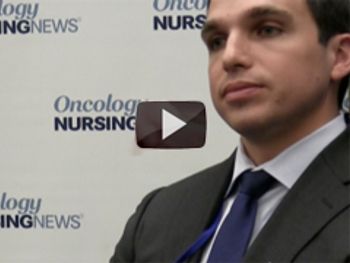
When treating patients with prostate cancer in survivorship care, Dan Spratt underscores the importance of being aware of potential mental health issues.

When treating patients with prostate cancer in survivorship care, Dan Spratt underscores the importance of being aware of potential mental health issues.
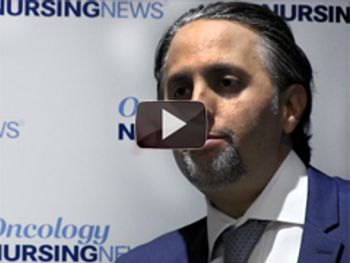
Dr. Omid Hamid discusses some toxicities that come from combination immunotherapies
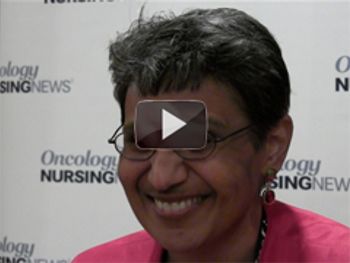
Anees Chagpar describes the oncology nurse's relationship between the patient and physician and gives some examples of important questions to be asking.
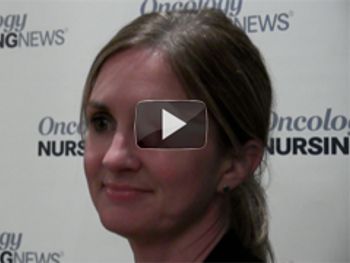
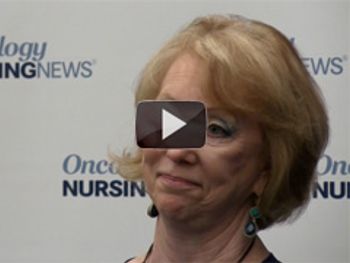
Deborah Watkins Bruner advises nurses on how they can help patients with cancer who are struggling financially.
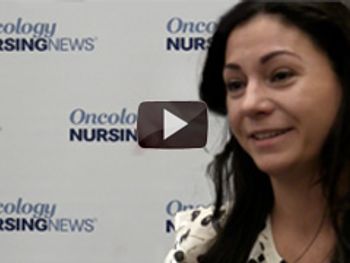
Molly Olm-Shipman talks about how a nurse can help ensure that the autonomy of patients with breast cancer is preserved.
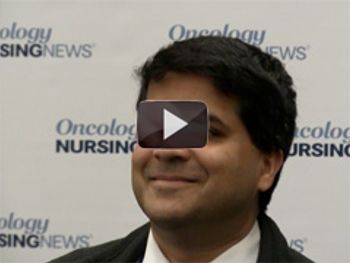
Ranjit Bindra advises nurses in pediatric oncology to take care of themselves by learning coping skills early on.
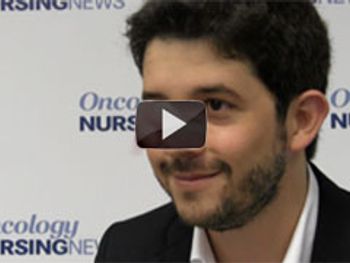
Ricardo Bello, MD, MPH, discusses what patients with breast cancer need to be aware of to make informed decisions after mastectomy.
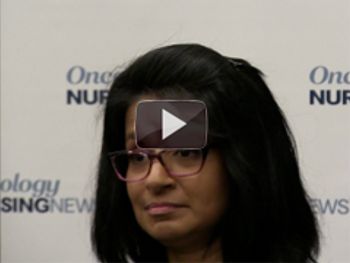
Meena Moran discusses the importance of nurses and nurse navigators when treating patients with cancer through a multidisciplinary approach.
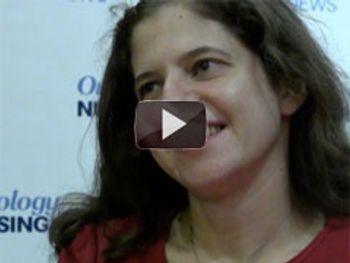
Yvonne Saenger, MD, from Columbia University, gives a rundown of the immunotherapy options for treating melanoma.
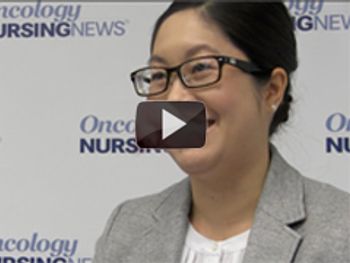
Melisa Wong lays out the findings of a study she did looking at the age of patients with recurrent lung cancer and the likelihood they were to receive active treatment.

Morganna Freeman, DO, FCAP, from The Angeles Clinic and Research Institute gives advice on how to help a patient who is dealing with the stigma associated with melanoma, or other cancers.
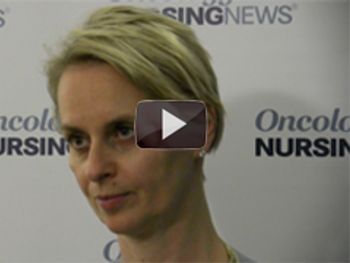
Elena Ratner, MD, of the Smilow Cancer Hospital at Yale-New Haven stresses the importance of bringing up intimacy and sexuality issues with patients.
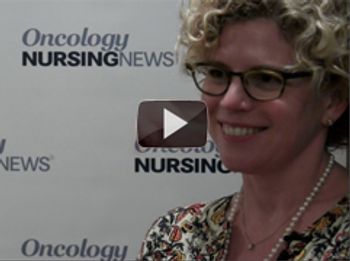
Dr. Killelea talks about the importance of communication between all healthcare providers when treating patients with breast cancer.
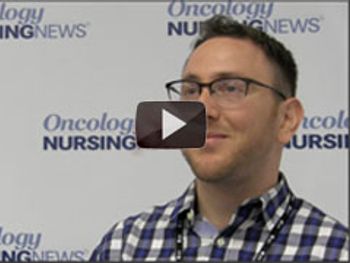
Uri Goldberg lays out important steps for improving the pain management of patients with cancer.
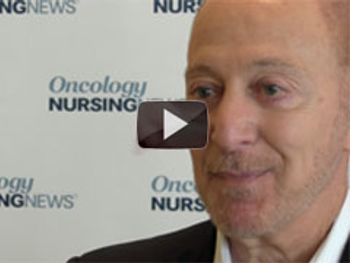
Oncology nurses are an important resource for patients with cancer when dealing with adverse effects that can be disruptive to quality of life.

Cathy Belt, RN, MSN, AOCN, Abramson Cancer Center of the University of Pennsylvania, discusses possible steps individuals can take upon finding out they have an inherited cancer syndrome, such as mutations in the BRCA1 or BRCA2 genes.
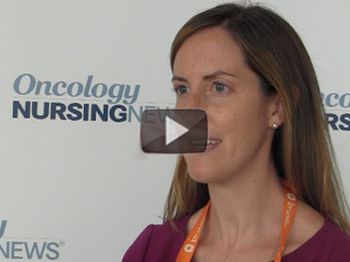
Maureen E. Thyne, RPA-C, Weill Cornell Medical College, discusses the impact that ruxolitinib (Jakafi) has had on patients with myelofibrosis.
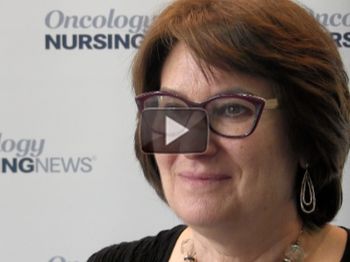
Melissa L. Bondy, PhD, MS, associate director for cancer prevention and population sciences at Baylor College of Medicine, discusses the importance of finding genetic mutations that can cause cancers such as glioma.
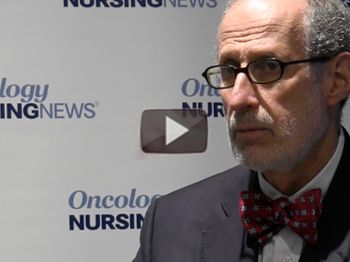
Jeffrey Weber, MD, PhD, deputy director of the Perlmutter Cancer Center, NYU Langone Medical Center, discusses the role of the oncology nurse when treating patients who have cancer with checkpoint inhibitors.
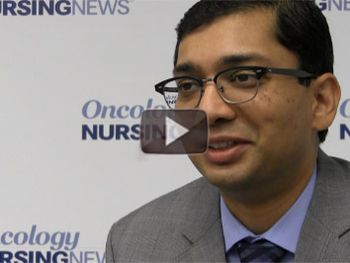
Arvind Shinde, MD, MBA, MPH, assistant clinical professor at Cedars-Sinai Medical Center, discusses the potential benefits of monitoring patients with fitness trackers.
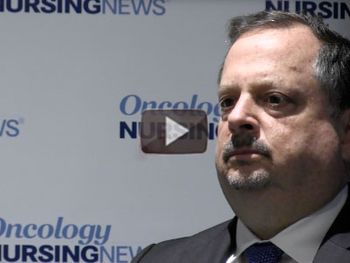
Richard Essner, MD, co-director Melanoma Program, Cedars-Sinai Medical Center, discusses the nurse’s role in managing wounds after a patient undergoes surgery for melanoma.
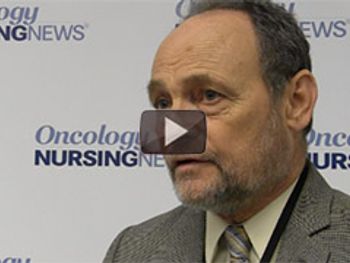
Michael Birrer, MD, PhD, Harvard Medical School, discusses what he hopes to discover as factors that influence long-term survival in patients and survivors with ovarian cancer.
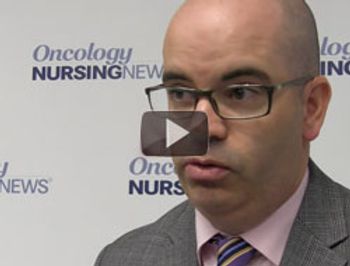
Grant Williams, MD, clinical instructor and research fellow at the University of North Carolina, Chapel Hill, discusses sarcopenia in patients with cancer.
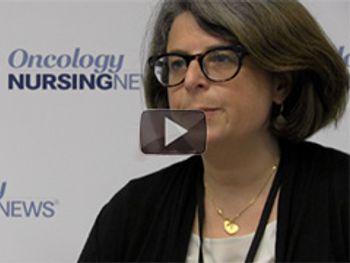
Jennifer Levine, MD, Columbia University Medical Center, discusses fertility issues that adult survivors of childhood cancer often face.
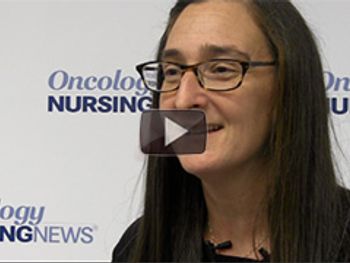
Dawn L. Hershman, MD, MS, Columbia University Medical Center, discusses preventing chemotherapy-induced peripheral neuropathy (CIPN) in diabetic patients with cancer.
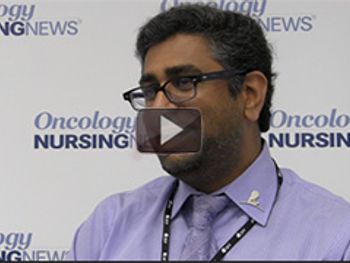
Nickhill Bhakta, MD, fellow at St. Jude Children’s Research Hospital, discusses some unanswered questions about late effects of adult survivors of childhood cancer.
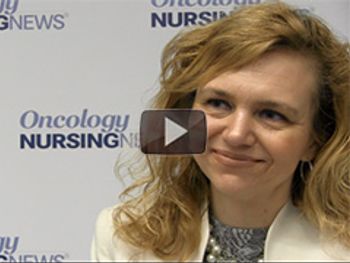
Fay J. Hlubocky, PhD, MA, University of Chicago Department of Medicine, discusses the concerns about death that young adult survivors face.
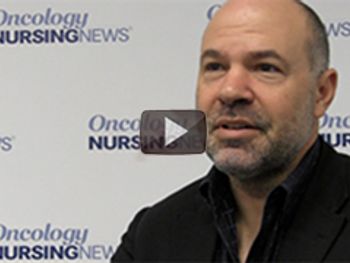
Dave Dubin, founder of AliveAndKickn, discusses the importance of healthcare professionals knowing when to test for Lynch syndrome.